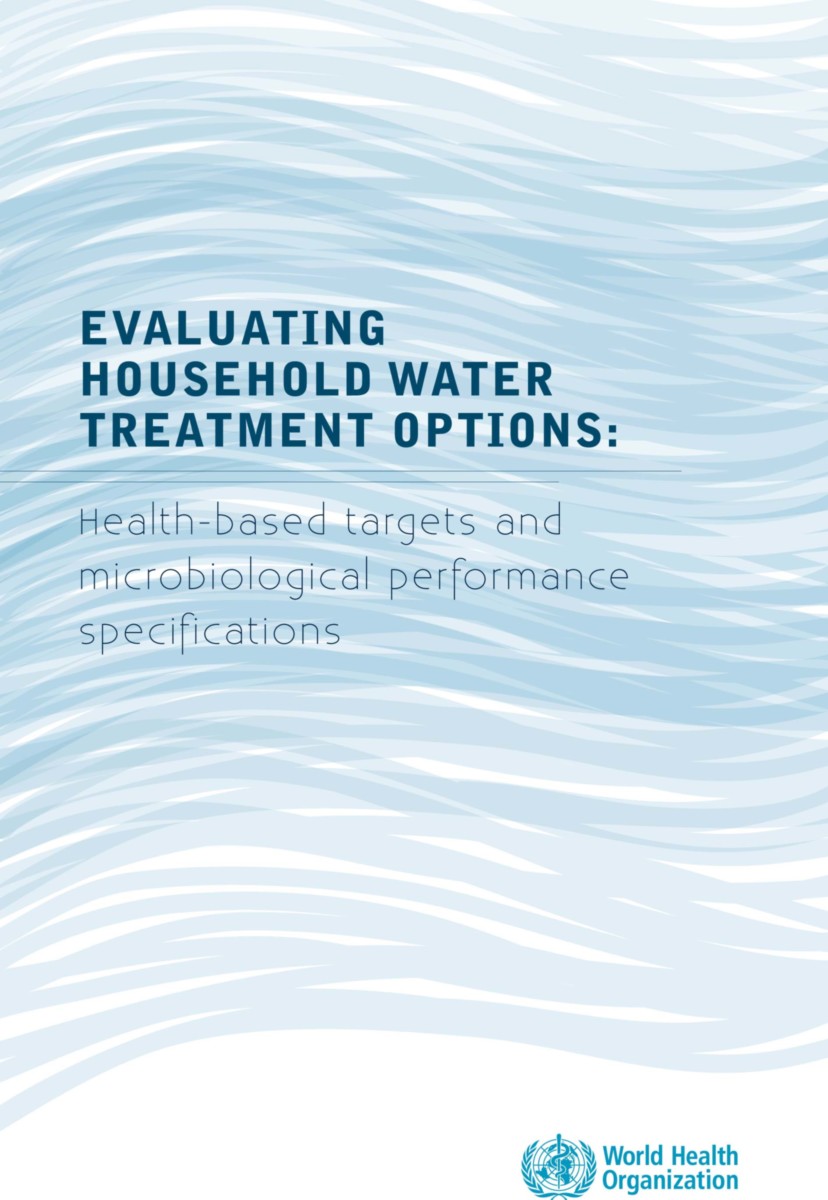Evaluating Household Water Treatment Options
Health-Based Targets and Microbiological Performance Specifications
- Publisher
World Health Organization - Published
1st November 2011 - ISBN 9789241548229
- Language English
- Pages 68 pp.
- Size 6.75" x 9.25"
Household water treatment (HWT) is increasingly being promoted as a rapidly implementable and cost-effective interim approach to improve water quality. It is a key preventive component of the WHO/UNICEF comprehensive strategy on diarrhoea control.
This book, for the first time, sets forth global criteria that enables users to evaluate whether an HWT option reduces waterborne pathogens sufficiently to protect health. Through use of a risk-based framework and by emphasizing the philosophy of incremental improvement, it is intended to provide implementers and policy-makers with an evidence-based and pragmatic approach to select options suited to local conditions.
This book provides a range of technical recommendations, including:
• A step-by-step overview of how to evaluate HWT microbiological performance
• Elaboration of health-based water quality targets ranging from interim to highly protective, including establishment of default targets for use in data-scarce settings
• Description of technology-specific laboratory testing protocols and guiding principles
• Considerations relating to developing national technology evaluation programs.
This book is especially intended for resource-scarce settings where water quality laboratories may have limited capacity and incremental improvements of HWT performance could have a substantial, positive impact on public health.
World Health Organization
World Health Organization is a Specialized Agency of the United Nations, charged to act as the world's directing and coordinating authority on questions of human health. It is responsible for providing leadership on global health matters, shaping the health research agenda, setting norms and standards, articulating evidence-based policy options, providing technical support to countries, and monitoring and assessing health trends.


